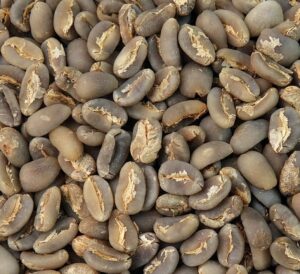Arabica Coffee Extract, known scientifically as Coffea arabica, is celebrated worldwide for its premium quality and distinct flavor profile. In recent years, the focus has shifted to extracting key compounds from this beloved coffee bean to create Arabica coffee extract. This comprehensive guide aims to delve into the intricacies of Arabica coffee extract, exploring its origins, composition, health benefits, extraction methods, and diverse applications.
Arabica Coffee: A Brief Overview
Arabica coffee is one of the two main species of coffee beans, the other being Robusta. Arabica is renowned for its superior quality, mild flavor, and aromatic characteristics. The Arabica coffee plant is native to the high-altitude regions of Ethiopia and has become a staple in coffee production globally.
Composition of Arabica Coffee
Arabica coffee is derived from the green coffee beans of the Arabica plant. The composition of this extract is a complex interplay of various chemical compounds. Key components include:
a. Caffeine: A central nervous system stimulant that contributes to the energizing effects of coffee.
b. Chlorogenic Acids: These antioxidants are believed to have numerous health benefits, including anti-inflammatory and anti-diabetic properties.
c. Lipids: Essential fatty acids found in Arabica coffee contribute to its flavor and aroma.
Extraction Methods
Arabica coffee is typically obtained through various extraction methods, each influencing the final product’s flavor and composition. Common methods include:
a. Solvent Extraction: Using solvents like water, ethanol, or supercritical carbon dioxide to isolate compounds from the coffee beans.
b. Water Extraction: Employing water as a solvent in processes like cold brew or hot brewing methods to extract flavors and antioxidants.
c. Supercritical Fluid Extraction: Utilizing supercritical carbon dioxide to selectively extract compounds without the use of harmful solvents.
Health Benefits of Arabica Coffee
Consumption of Arabica coffee extract has been associated with several health benefits, owing to its rich composition:
a. Antioxidant Properties: Chlorogenic acids in Arabica coffee extract act as potent antioxidants, protecting cells from oxidative stress.
b. Metabolic Boost: Caffeine content can enhance metabolism and promote fat burning, making Arabica coffee extract a popular ingredient in weight loss supplements.
c. Mood Enhancement: The stimulating effects of caffeine contribute to improved mood, alertness, and cognitive function.
Applications of Arabica coffee
The versatility of Arabica coffee extract extends beyond traditional coffee beverages. It is now a sought-after ingredient in various industries:
a. Food and Beverage: Arabica coffee extract is used to flavor a wide range of products, including ice cream, chocolates, and baked goods.
b. Cosmetics: The antioxidant properties of Arabica coffee extract make it a popular addition to skincare products, helping combat signs of aging and promote skin health.
c. Pharmaceuticals: The potential health benefits of Arabica coffee extract have led to its inclusion in pharmaceutical formulations, especially those targeting metabolic health.
Arabica Coffee Extract in the Global Market
As consumer awareness of health and wellness grows, the demand for products containing Arabica coffee extract is on the rise. The global market for coffee extracts is expanding, with a focus on sustainable and ethically sourced Arabica beans.
a. Trends and Innovations: Innovative products such as Arabica coffee-infused energy drinks, ready-to-drink cold brews, and even coffee-flavored alcoholic beverages are gaining popularity.
b. Sustainability Practices: Consumers are increasingly concerned about the environmental impact of coffee production. Companies are responding by adopting sustainable practices, including fair trade and eco-friendly cultivation methods.
Considerations and Potential Side Effects
While Arabica coffee extract offers numerous benefits, it is essential to consider potential side effects, especially for individuals sensitive to caffeine. Moderate consumption is generally well-tolerated, but excessive intake may lead to issues such as insomnia, increased heart rate, and digestive problems.
Conclusion
Arabica coffee extract stands at the intersection of tradition and innovation, embodying the rich history of coffee consumption while meeting the evolving demands of the modern market. As research continues to unveil the health benefits and diverse applications of Arabica coffee extract, it is poised to remain a key player in the global coffee industry, captivating the taste buds and improving the well-being of consumers worldwide.




























 Arabic
Arabic Chinese (Simplified)
Chinese (Simplified) Dutch
Dutch English
English French
French German
German Indonesian
Indonesian Italian
Italian Japanese
Japanese Portuguese
Portuguese Russian
Russian Spanish
Spanish